The Annual Meeting offers a cutting-edge scientific programme that showcases the latest research and includes presentations from renowned speakers in the field of spine care and surgery.
Find out what to expect and get insprired.
Here you can find detailed information about the scientific programme of the EUROSPINE Annual Meeting.
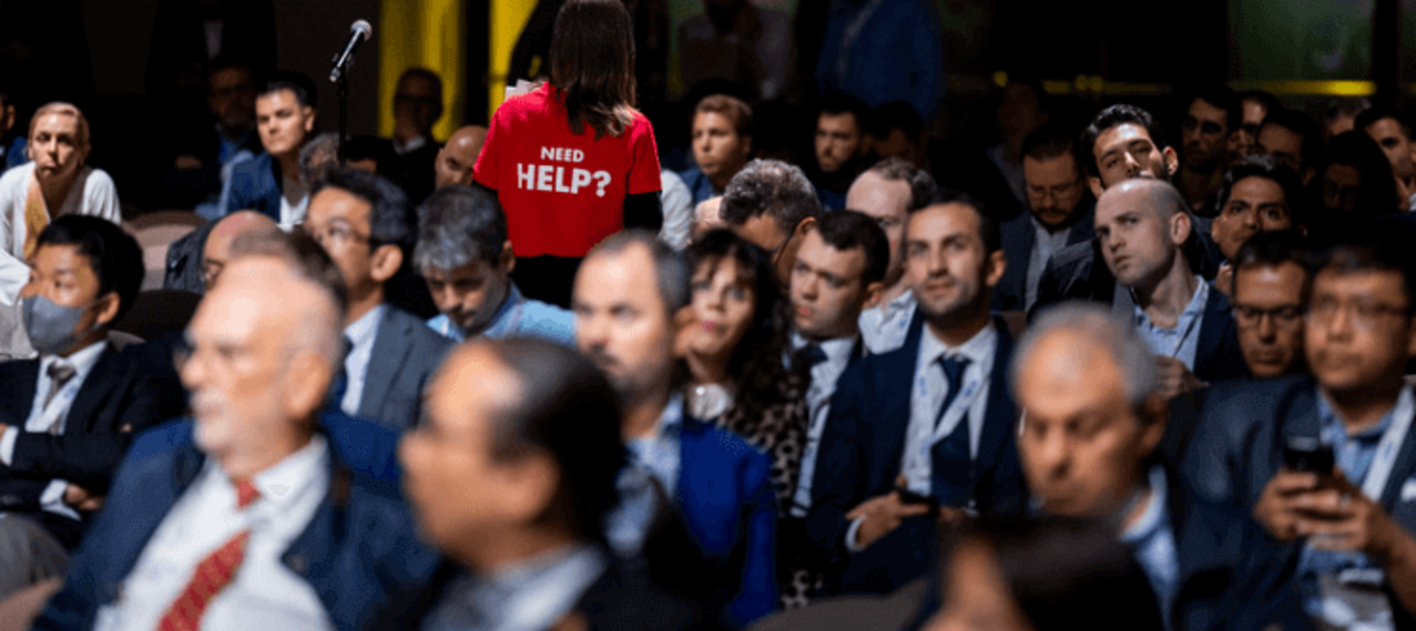
The Annual Meeting offers a cutting-edge scientific programme that showcases the latest research and includes presentations from renowned speakers in the field of spine care and surgery.
Find out what to expect and get insprired.
days
cutting edge spine topics
stages

With our unwavering dedication to quality, we prioritize cutting-edge scientific content. By limiting concurrent sessions to a maximum of two, we ensure a well-balanced mix of relevant spine topics. Additionally, each keynote presentation stands alone, guaranteeing maximum impact.

You can expect an engaging and innovative session set-up that goes beyond traditional front line presentations. Our aim is to provide sessions that are easy to follow and capture your interest, enabling active participation and knowledge retention.

Our programme combines cutting-edge spine research presentations with interactive educational sessions. This unique approach allows you to stay updated with the latest findings in the field while offering valuable takeaways in a vibrant and engaging environment.

In addition to themed sessions on one of the spine topics, you will find in-depth discussion sessions and the main lectures of the congress. Do not miss the Best of Show Session, the Medal Lecture and the Invited Lecture on New Technologies.

In the breakout hall, you will find some topica sessions with lunch symposia and captivating keynote presentations, as well as our much sought-after lunchtime symposia.

Located directly at the EUROSPINE booth, this new arena offers educational expert talks (for members only), showcases inspiring committee work, and provides new session formats, including career interviews and debates.
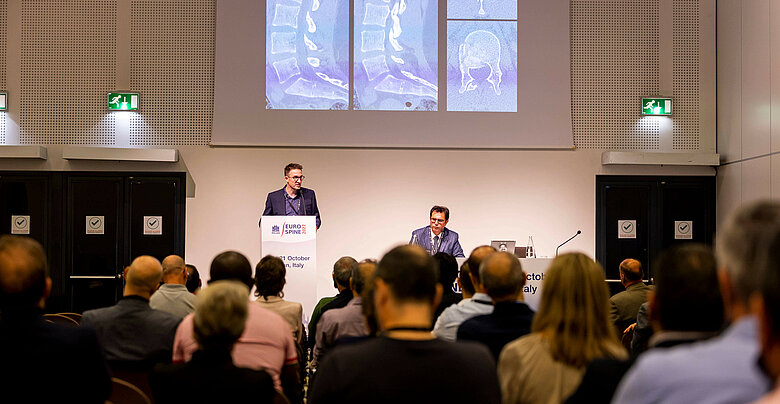
Discover the exciting programme happening on Tuesday, 4 October, now!
The cervical spine session will focus on the unique challenges and opportunities associated with the anatomy and function of the neck. Topics covered will include cervical spine surgery, spinal cord injury and rehabilitation. The session will be followed by an interactive panel discussion with leading experts.
In the growing spine session, attendees will learn about spinal anatomy, common disorders, emerging technologies, and techniques for monitoring and promoting spinal growth.
The basic science session will explore the latest research and scientific developments related to spinal health and function. Topics covered will include spinal biomechanics, neurophysiology and tissue engineering.
The trauma & tumours session will focus on the latest research and techniques for treating spinal trauma and tumours, including surgical and non-surgical approaches.
Join us for this comprehensive conference day where you will gain valuable insight from experts in these four important areas of spinal health!
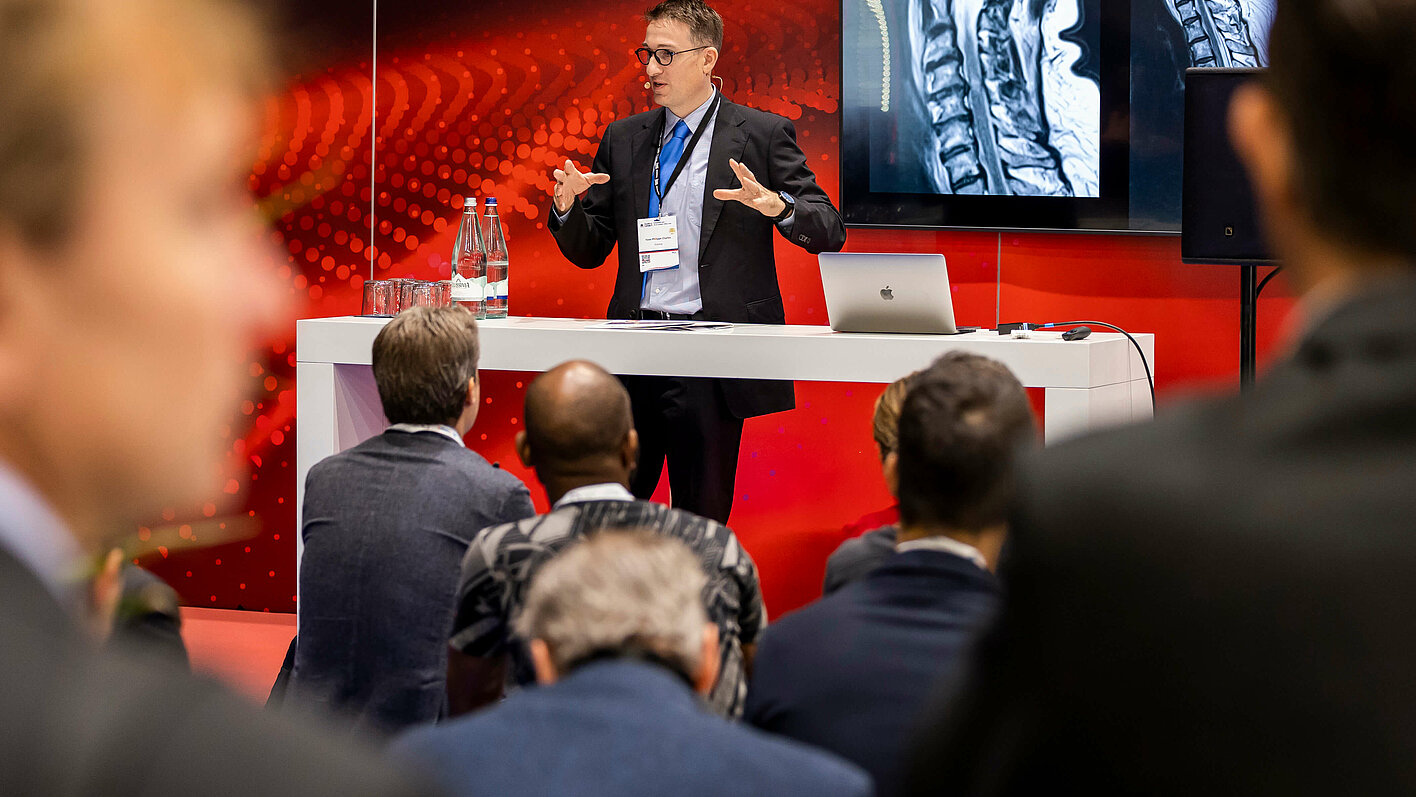
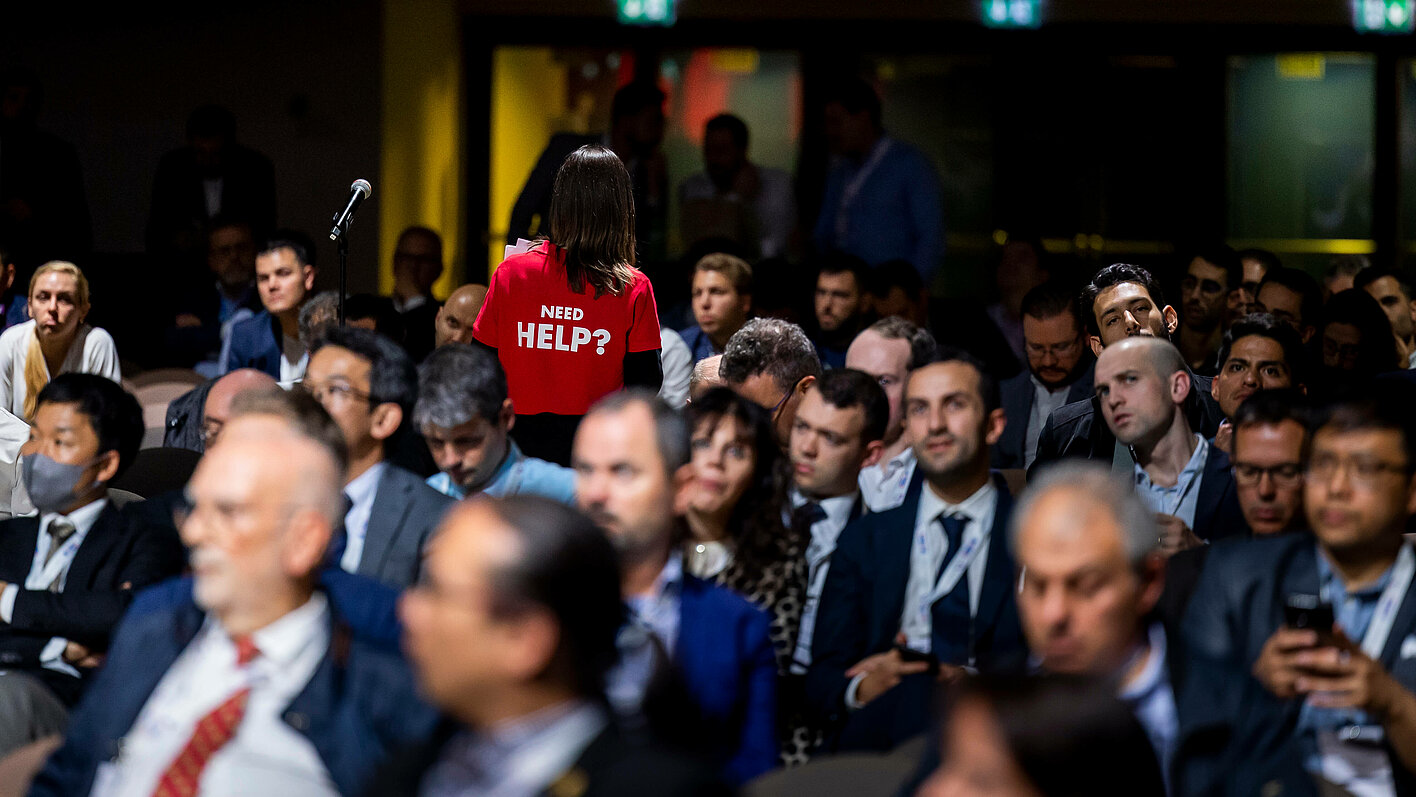
On the second day of the conference, the main session topics will be degenerative thoracolumbar, specific show cases, complications & epidemiology.
The degenerative thoracolumbar session will cover common spinal conditions, such as degenerative disc disease and spinal stenosis, and their management. Delegates will learn about the latest surgical and non-surgical treatment options, including minimally invasive techniques.
The Best of Show session will feature the best papers of specific cases that showcase innovative approaches to treating spinal conditions. The complications & epidemiology session will cover topics such as the incidence and risk factors for complications related to spinal surgery, as well as strategies for minimising these risks.
The adult spinal deformity lecture refers to abnormal curvatures or misalignments of the spine that occur in adults, which can result in pain, disability, and decreased quality of life. This is a complex condition that often requires a multi-disciplinary approach to treatment, including physical therapy, medication, and surgery.
The session on new techniques will deal – among others with the following new approaches and their pros and cons: minimally invasive surgery (MIS), artificial disc replacement (ADR), robotic surgery, 3D printing and customised implants and stem cell therapy.
The session will be followed by an inspiring debate on Collaborative Perspectives: Exploring the Future of Spinal Care with AI and Technology.
The scientific programme will end with a topic session on Minimal Invasive Surgery.
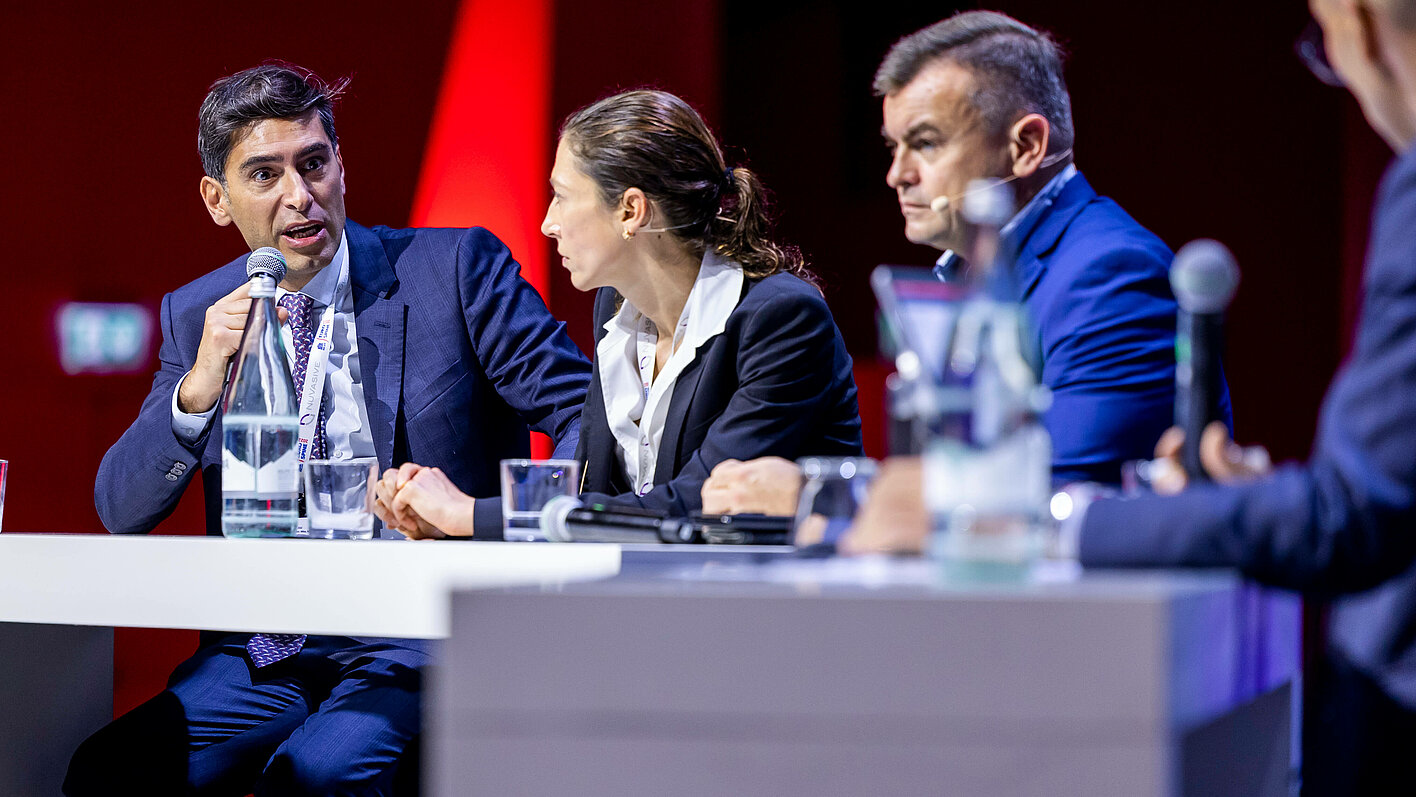
This website uses cookies to give you the best possible experience. By using this website, you agree to the use of cookies. Detailed information can be found in our privacy policy .
Note on the processing of your data collected on this website by Google in the USA:
By accepting statistical or marketing cookies, you consent to your data being processed in the USA in accordance with Art. 49 para. 1 p. 1 lit. a) GDPR. The USA is rated by the European Court of Justice as a country with an insufficient level of data protection according to EU standards. In particular, there is a risk that your data may be processed by US authorities for control and monitoring purposes, possibly without the possibility of legal remedies. Your consent is voluntary and can be revoked at any time. You can configure cookies settings on the cookies page.